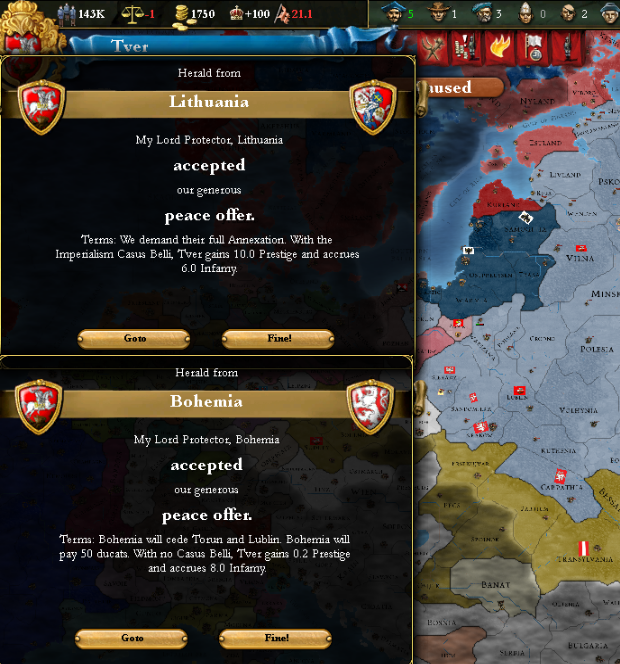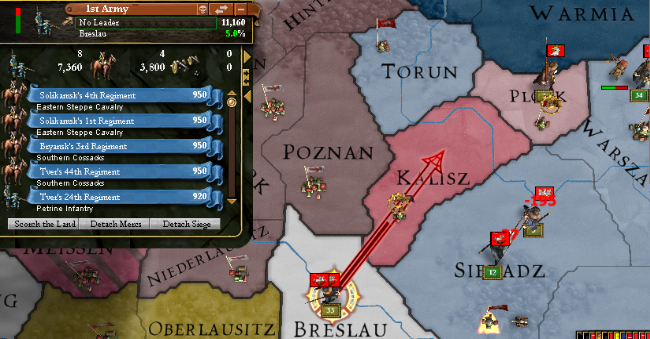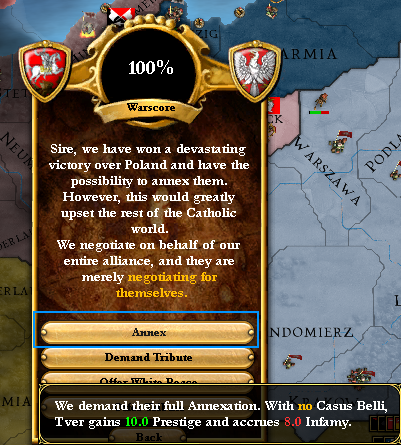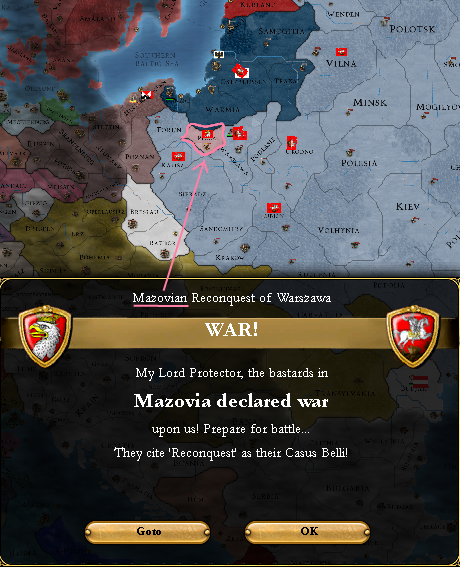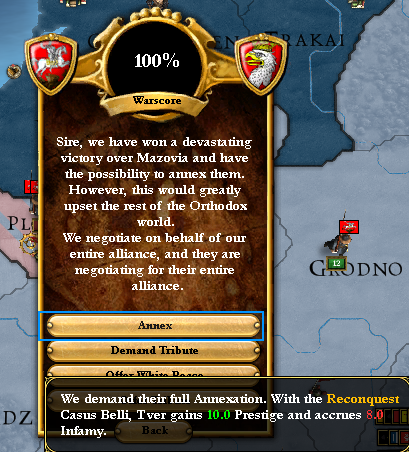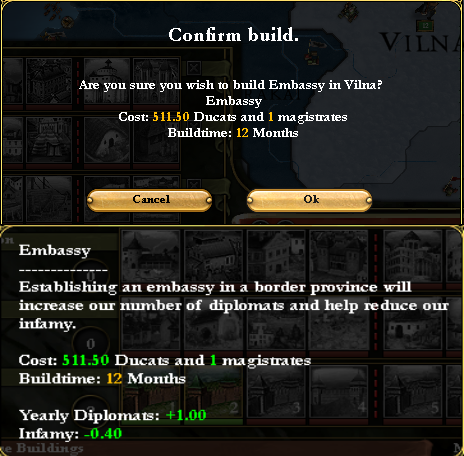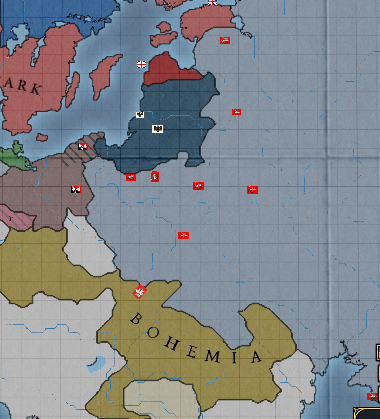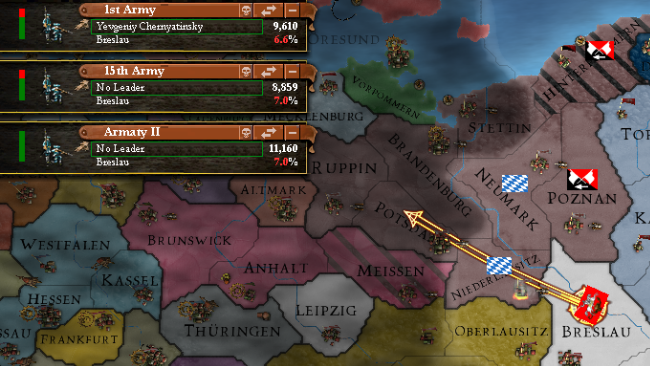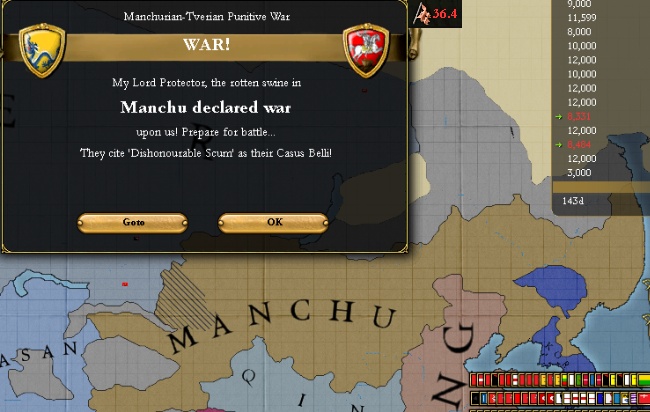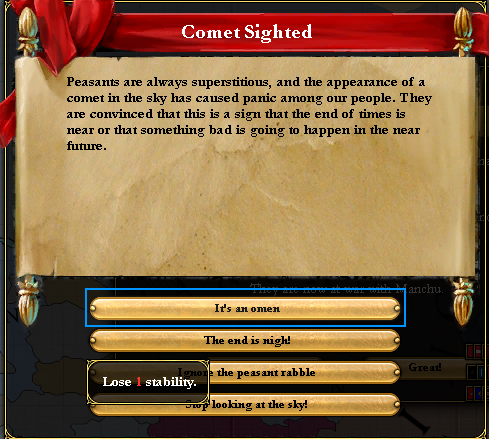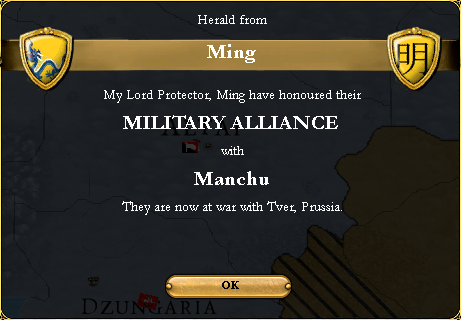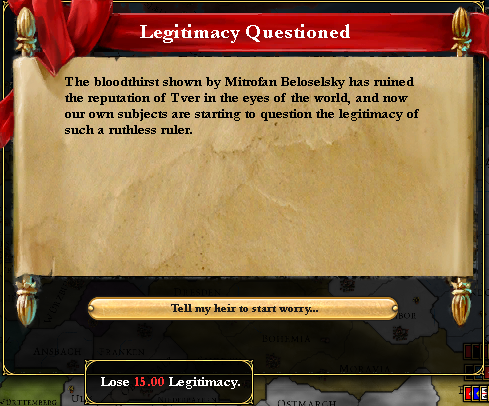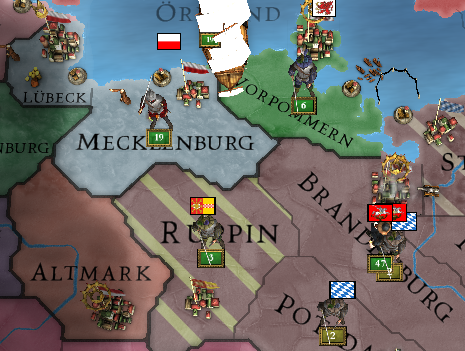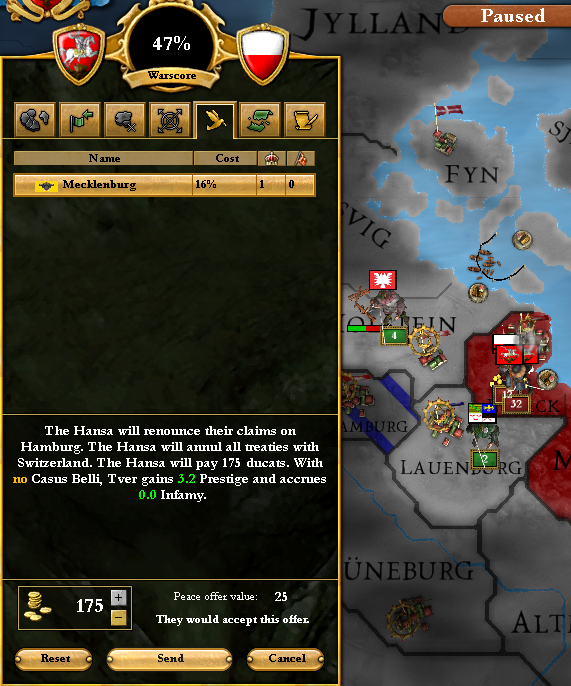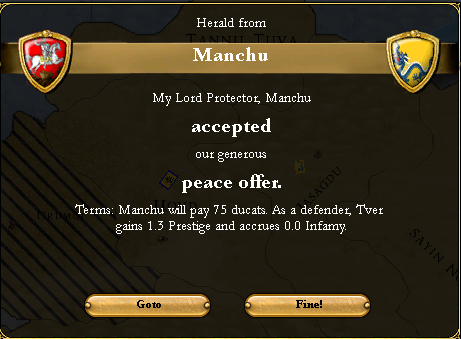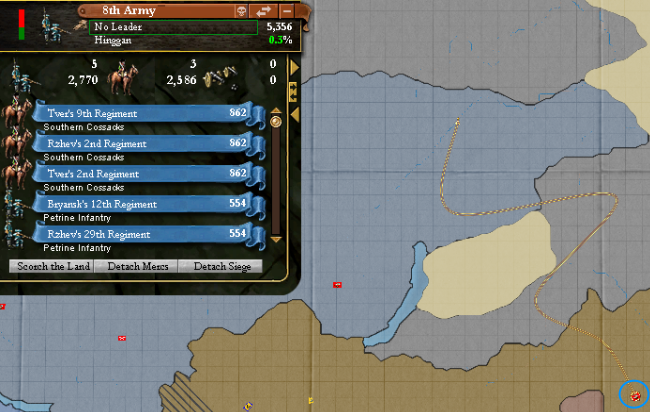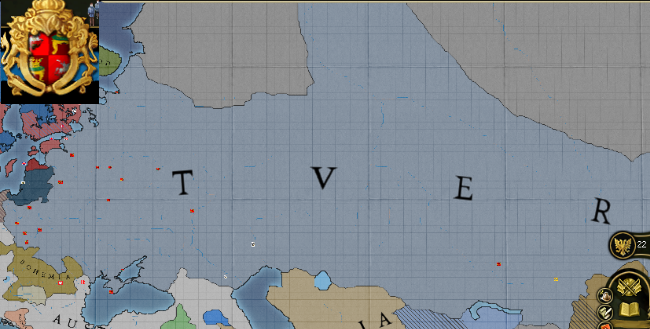Episode LXII: Baptism of Tver
1660, Imperial Palace, City of Tver, Imperial Commonwealth of Tver
The Imperial Commonwealth of Tver was beset from without and within. The old monarchies of Europe looked upon this 'republican dictatorship' with apprehension, and traditionalists amongst its nobility plotted and schemed to restore the old order. The execution of Czar Boris Rurikovich had shocked royal courts from Lisbon to Vienna, and his replacement with the rebel leader Mitrofan Beloselsky was seen as setting a dangerous precedent.
Beloselsky now led the Commonwealth Committee, the council that had taken the place of the Czar and his select group of advisors. As Lord Protector of the Imperial Commonwealth of Tver, he was the leader of the largest nation in the world – but one wary of attacks both from without and within. He was known as a skilled diplomat and passable administrator – an honest man on the surface, with a silver tongue and roguish charisma. Best of all, perhaps, he acknowledged his weaknesses, and was not afraid to delegate to those with greater knowledge of a field than he had. He met with the Lord Chamberlain every morning to discuss internal affairs.
'Our stability is a problem.'
'It is, sir, but we can counter the increase in separatist tendencies. We will need to keep a close watch on some of our nobles, but for now, nothing that we can't deal with.'
'So our armies are well equipped, and ready to deal with any rebellions. What about our economic situation?'
'Very steady, my Lord. Though we should be careful when investing in large infrastructure or military projects. Our inflation is lower than most powerful nations, but we're still trying to restrain it.'
'Talking of barely-restrained inflations, morning Dobczyńska.'
'Morning sir.'
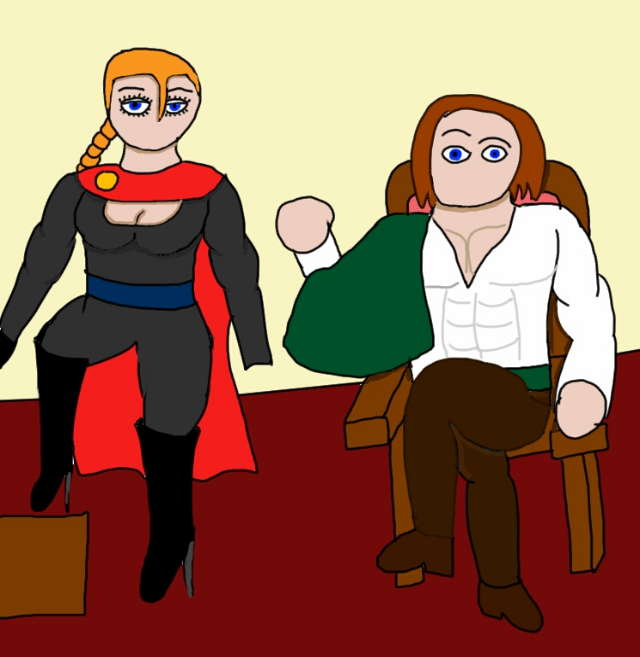
Marta Hallie Dobczyńska, Captain of the Guard and Chief Advisor, entered the Lord Protector's study . The grand room had formerly been the morning drawing room of the Imperial Palace. Mitrofan Beloselsky tried to avoid associating himself with the trappings of monarchy. He was planning to make the former Treasurer's House into his main residence and leave the Imperial Palace as vacant as the throne (or, as he put it, the skull of his predecessor). For now though, a 'lesser' chamber of the Imperial Palace – one of the finest early-renaissance drawing rooms in Europe – was his preferred audience chamber.
'Thank you, Chamberlain. So, Dobczyńska. How is my
right-hand man this morning?'
'Hilarious, sir.' Upon Beloselsky's investiture as Lord Protector, Dobczyńska had been the obvious choice as his right-hand man. Partly because of her and her family's history of service to the Empire, but mostly because she didn't have a left one.
'Come now, Dobczyńska. Requirements of the Chief Advisor. Number three: laugh at the Lord Protector's jokes.'
'I don't remember that in the contract.'
'It's clearer in the original Classical Greek.'
'Talking of skulduggery, your reputation is tarnished.'
'I wonder what could possibly have done that.'
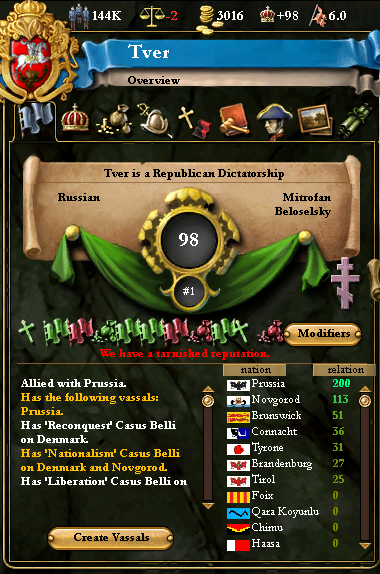
'He did need chopping.'
'I know that, sir, I'm the one who gave the bloody order.'
'Very bloody.'
'And saved your life in the process, I might add.'
'You might. And did, I note.'
'You know what some people say about me? That I'm not a true Dobczyński?'
'To me, Marta, you're the truest Dobczyński of them all. Tell me, if the Rurikoviches had been replaced – failure to produce a son, that sort of thing – you would have served the new monarch, wouldn't you?'
'Of course. Well, maybe not a Von Habsburg, but yes.'
'Your family are servants of Tver, not of one particular dynasty. Would you have rather been responsible for aiding a tyrant in ruining the Empire's reputation?'
'No.'
'Well, then. You will be Captain of the Guard to me, and to my successors, until we finally find another worthy to wear the Imperial crown. Happy?'
'Ish. Anyway, you're a Lord Protector not a psychotherapist. Get Protecting.'
'Yes ma'am. One advantage of our...temporary...form of government is that we can pretty much get away with anything.'
'What do you mean?'
'The monarchies of Europe spread fear and propaganda about us to their peoples and to each other. They're even more afraid of us than they were before. Do you see where I'm going with this?'
'Naturally, sir. You think you should give them a reason to fear you.'
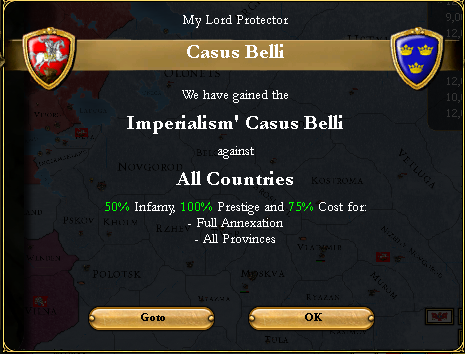
'Precisely. They want to attack us. They can't afford Tver to be a success without a monarch. They need to see us fail.'
'Then maybe we should give them an example. Show them what will happen to any country that gets in our way.'
'I like your thinking, Dobczyńska.'
'The Duke of Prussia assures you of his fealty, sir. Perhaps it might be time to reward them.'
'Good idea. Might also convince those Prussian rebels to accept that Prussians should be Prussian.'
'Agreed. Make it happen, then Dobczyńska. The Teutonic Order's time is long gone, their pathetic little state a relic. We will crush them under the boot of progress.'
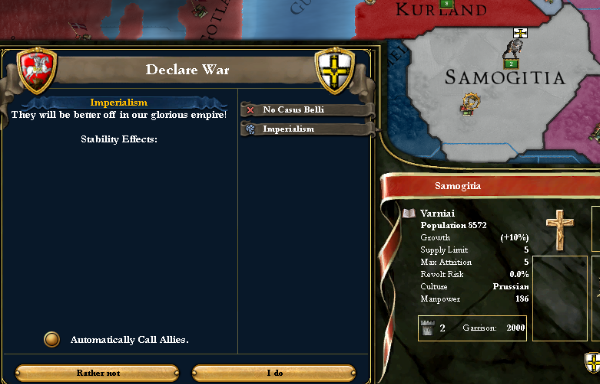
Without allies, the conquest of Samogitia was a formality, and the last bastion of the Teutonic Order was handed over to the Duchy of Prussia.
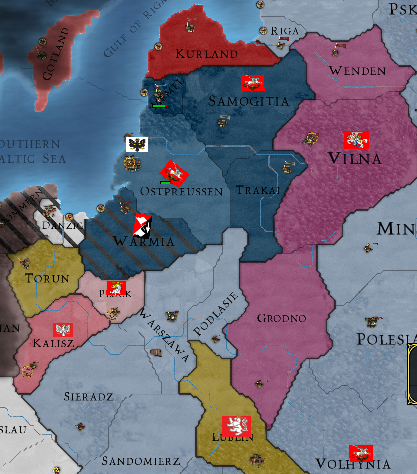
'A great victory, sir. The Duke of Prussia sends his thanks. He wishes to create a great monument celebrating Tverian-Prussian unity.'
'A fine gesture. We shall create a similar one in Tver, perhaps by the Prussian embassy. Something classical. Can you handle it, Dobczyńska?'
'No bother, sir. I know a thing or two about handling columns.'
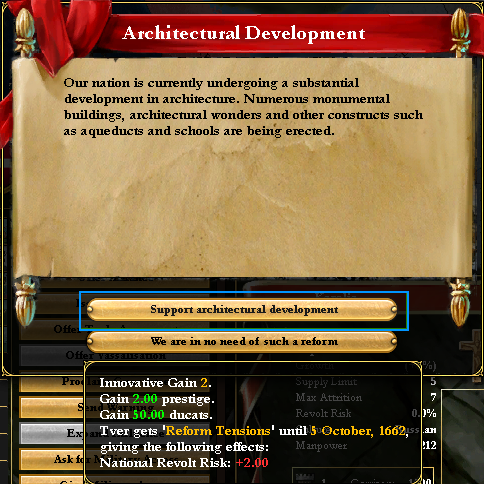
'It has also been brought to my attention, sir, that Taira is fine with the endorsement of the Shogun.'
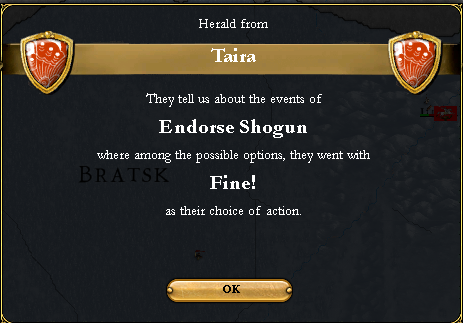
'Oh. Well. Good for them. Send a congratulatory bottle of wódka. I'm sure we have a few spare ones.'
'Plenty, sir. And to think that some say grain provinces are useless...'
'Now. The Order is dealt with. The omens are good, no?'
'No.'
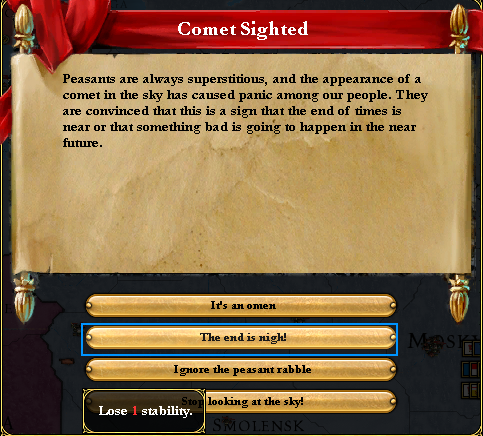
'Well. Never mind. What else is going on?'
'Trouble in the parliament, sir. The monarchists are trying to do business behind your back.'
'Again? We won't have it, Dobczyńska. These people were too powerful even before Czar Boris came along. He elevated them further for their sycophancy and toadying, and now they want to cling to their positions?'
'We'll have to remove them, sir.'
'Them or their heads?'
'Perhaps we should exercise a little caution, sir.'
'You're right. Any more obstruction, more attempts to do business without the consent of the Commonwealth Committee, and they will lose their titles. The Imperial Commonwealth will be run by the Committee until such a time as a new Emperor is elected. If they don't like that, they can leave.'
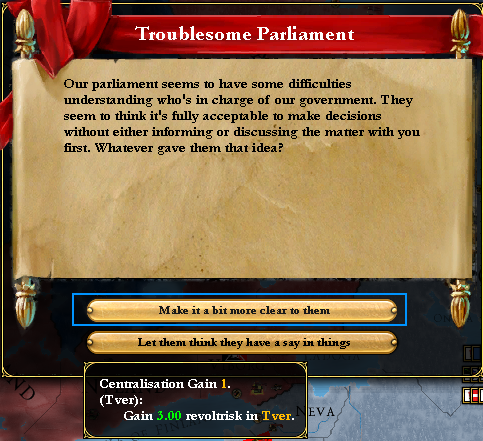
The Lord Protector's repatriation of Samogitia had the desired effect: Prussian rebels in Gdańsk handed over control of the rich port city, formerly part of the Austrian Empire, to the Duchy of Prussia. The state, a vassal of the Imperial Commonwealth, was now a powerhouse of northern Europe, with a strong army and a powerful navy patrolling the Baltic.
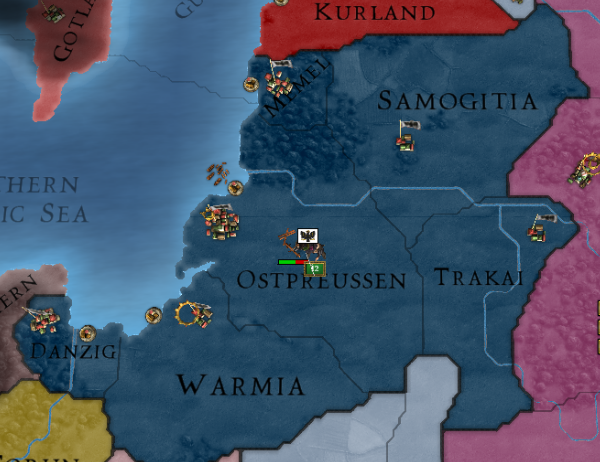
'Right. Dobczyńska, I need you to cause some mischief.'
'You know I'm good at mischief, sir.'
'A different kind. We need to expand further into central Europe. Press our boundaries. Any good areas?'
'Nowy Zamki could be a possibility, sir. We've beaten Bohemia before, and more territory south of Kraków would be of real benefit. A buffer zone against Bohemia's main territories.'
'Good. Ersekuyvar it is then. Dispute it, lay our claims to it. Let's see how they react.'
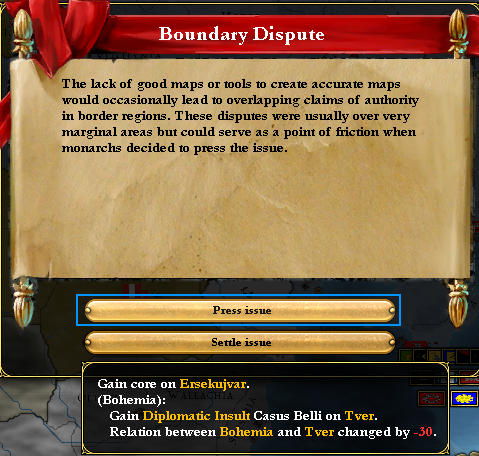
'Now. Your thoughts on Lithuania?'
'
Good soft drinks. Problematic border realm otherwise. Why?'
'Funny that you say problematic. As overlords of Poland and Belorussia, we should add Lithuania to our realm.'
'Bold. We've fought them before, but they have strong allies.'
'Nobody we can't deal with, Dobczyńska. Conquering the Order did not, I think, send quite the message we had hoped.'
'I see what you mean. And Lithuania are a perpetual problem. Only one problem: if we fight Bohemia, we'd be wise not to bother with taking Ersekuyvar yet.'
'We can taek it later. Annexing Lithuania would greatly benefit the Commonwealth. It's what I want, Dobczyńska, and what the Committee wants. But I trust you. Is the army ready for this?'
'Yes, sir.'
'Excellent. Then let's show these western dogs what the Imperial Commonwealth can do.'

The Imperial Commonwealth's forces marched into Lithuanian territory. Lithuania could field around fifteen regiments, a sizeable force, but alone they would be no match for Tver's forces. Their allies, though, responded immediately to the Commonwealth's aggression.
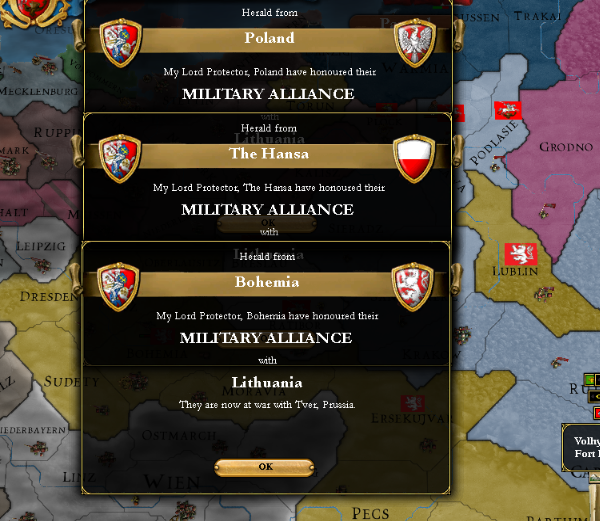
'I hope, Dobczyńska, that fighting Poland won't be a problem?'
'No, sir. Most of Poland is already within the Commonwealth. Our rights are guaranteed, thousands of Polish troops serve happily in the army. And if we defeat Bohemia, we can take their last two Polish provinces and fully re-unite the country.'
'Splendid. So you have a plan to deal with Bohemia?'
'Yes, sir.'
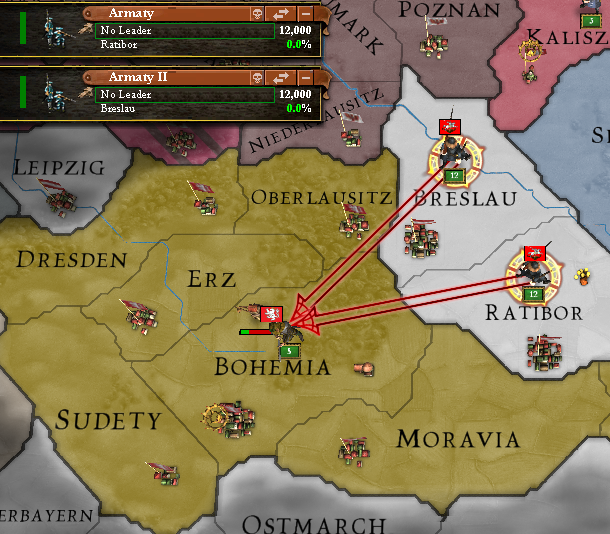
'Most impressive.'
'I know how you like admiring my guns, sir. Our two artillery regiments will be firing on the gates of Prague – once again, I might add – within a matter of days. Their armies will advance into our Ukrainian territories while we bombard their capital.'
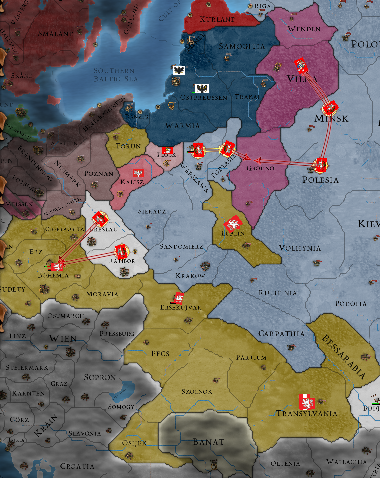
Bohemia's commanders, it semed, had not learned from their previous conflicts with Tver. While their troops marched confidently into Ukraine and towards the walls of Kraków (the same first targets as in previous wars), they were being outmaneuvered by Tverian siege forces moving straight into their heartlands. They would swiftly take Carpathia before they even knew that the guns of Tver were firing upon Prague. The city surrendered in a matter of days, and once again the capital of Bohemia, once seat of the Holy Roman Emperor, was in the hands of Tverian forces.
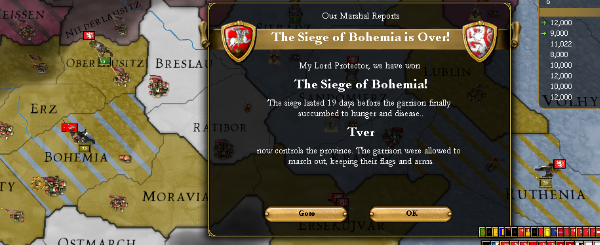
Bohemians and Lithuanian troops had made advances, but they paled against their losses. Lithuania was swiftly conquered, her defences no match for the rapid assault of Tver's armies. Dobczyńska continued the assault on Bohemia – a winning position against one of the strongest nations in Europe was not an opportunity that came up every day. Maximum advantage would have to be taken – and Marta Hallie Dobczyńska knew a thing or two about taking advantage.
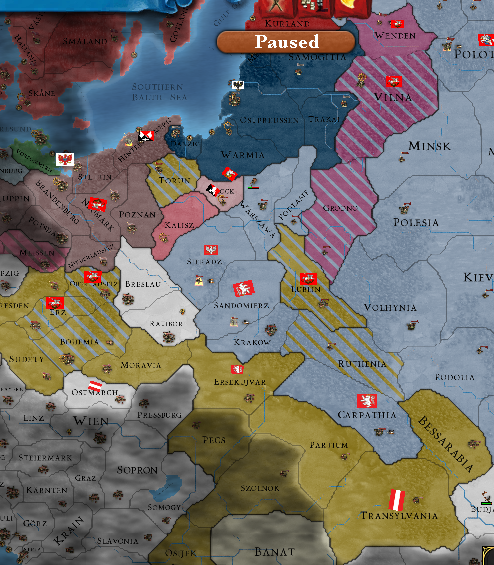
The Kings of Bohemia and Lithuania soon wrote to the Lord Protector, suing for peace. Mitrofan Beloselsky was an adept diplomat, and drove a hard bargain: Bohemia would cede the provinces of Kujawsko-Pomorskie - and the city Toruń – and Lublin, incorporating the last of their Polish provinces into the Imperial Commonwealth. For the Lithuanians, though, there was nothing less than total annexation. As with all minorities, Lithuanians would be free to practice religious and cultural activities, and the King would remain as leader of the new Grand Duchy of Lithuania. The all-important Guild of Cartographers was most grateful for the simplification of the borders. The war was not over – the Hansa and the small kingdom of Poland remained at large – but the Commonwealth's objectives had been achieved.
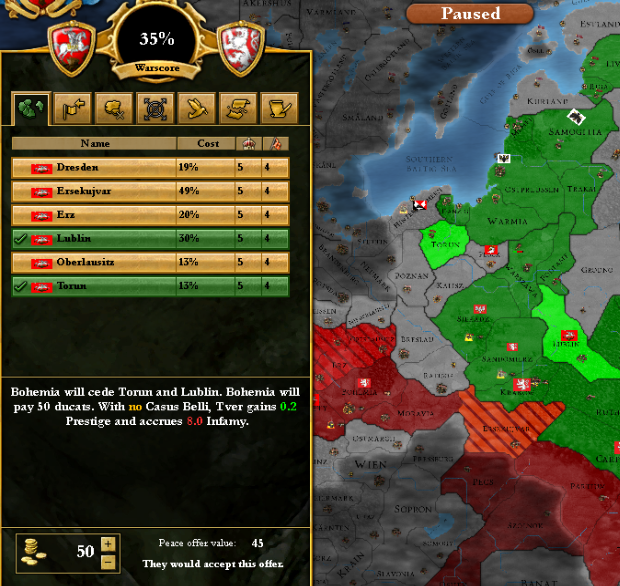
'Well, Dobczyńska, that war was short and easy.'
'Much like your sister.'
'There's more work to do – the merchants of the Hansa will have to be dealt with, as will the pretender king of Poland – but the worst is over, our closest rivals eliminated, and our power demonstrated for all to see. A strong start, Dobczyńska, for the Imperial Commonwealth of Tver!'
